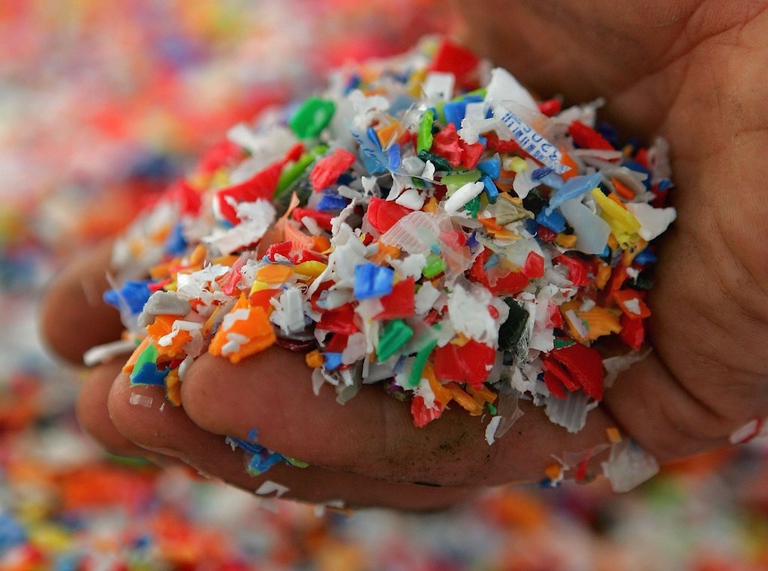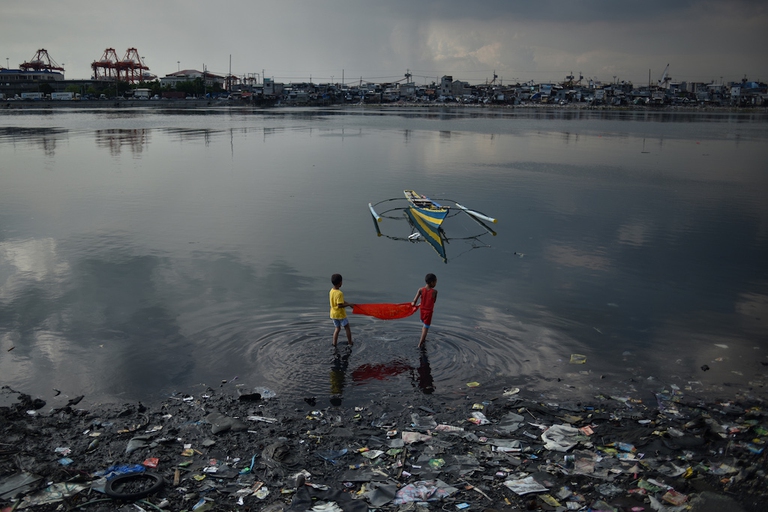
A group of experts in Tokyo suggested pouring radioactive water from Fukushima into the open sea. A marine biochemist explains the consequences of this absurd decision.
Drinking water in more than a dozen countries around the world has been found contaminated with micro particles of plastic a recent scientific study has revealed. About 83 per cent of the water samples tested during a research project commissioned by journalism organisation Orb Media contained plastic fibres, with the United States presenting the highest contamination rate
Drinking water in more than a dozen countries around the world has been found contaminated with micro particles of plastic a recent scientific study has revealed. About 83 per cent of the water samples tested during a research project commissioned by journalism organisation Orb Media contained plastic fibres, with the United States presenting the highest contamination rate at 94 per cent in cities like New York and Washington DC.
Read more: The world’s oceans will be home to more plastic than fish by 2050
Whilst the presence of plastic particles in the oceans is well documented, as are its negative consequences for the marine fauna, we are yet to understand what the consequences of ingesting plastic fibres could be for humans. Scientists are concerned both about the possible presence in drinking water of plastic nanoparticles, as reported by the Guardian, which we can’t measure but which could penetrate our cells and organs, as well as the chemicals and pathogens that plastic can harbour.
Read more: Stella McCartney and Parley for the Oceans team up to clean the seas from plastic
Previous research conducted on wild animals has shown that plastic releases toxic chemicals within animals’ bodies. “It became clear very early on that the plastic would release those chemicals and that actually, the conditions in the gut would facilitate really quite rapid release,” according to Professor Richard Thompson from Plymouth University in the UK, whose study revealed that a third of fish caught in the UK contains microplastic.
Data that has recently become available has begun to reveal the wider scale of global plastic contamination, with micro particles found in various German beers, honey, sugar and also falling from the sky, with three to ten tonnes of fibres estimated to be deposited each year in the city of Paris alone.
Read more: Ocean plastic. Billionaire Kjell Inge Rokke donates high-tech vessel to the scientific community
Scientists have called for more, necessary research to assess the full scale of the problem and the consequences it has on our health. And while for the time being researchers are still assessing the reasons behind contamination of drinking water there are some precautions we all can take to contribute to reducing the problem.
Recycling properly, buying products that don’t contain plastic particles like microbeads, and limiting the number of times we wash synthetic clothing – which has been found to release hundreds of thousands of particles into the environment at each wash – are just some of the many steps to reduce our environmental footprint.
Siamo anche su WhatsApp. Segui il canale ufficiale LifeGate per restare aggiornata, aggiornato sulle ultime notizie e sulle nostre attività.
![]()
Quest'opera è distribuita con Licenza Creative Commons Attribuzione - Non commerciale - Non opere derivate 4.0 Internazionale.
A group of experts in Tokyo suggested pouring radioactive water from Fukushima into the open sea. A marine biochemist explains the consequences of this absurd decision.
The decline in grey and humpback whales in the Pacific and Atlantic Oceans has been traced to food shortages caused by rising ocean temperatures.
The United Nations has launched a major international alliance for ocean science, undertaking a mission close to all our hearts.
The cargo ship that ran aground off the coast of Mauritius on 25 July, causing incalculable damage, has split in two and its captain has been arrested.
The largest coral reef in the world is severely threatened by climate change, but researchers are developing strategies that could contribute to saving the Great Barrier Reef.
Seychelles have extended its marine protected area, which now covers over 400,000 square kilometres, an area larger than Germany.
Norwegian oil giant Equinor had pulled out of drilling for oil in the Great Australian Bight, one of the country’s most uncontaminated areas. A victory for activists and surfers who are now campaigning for the area to be protected forever.
30 per cent of the planet needs to be protected to stop precipitous species decline. The UN has set out its aims for the the COP15 on biodiversity scheduled for Kunming, China in October.
Ocean warming has risen to record highs over the last five years: just in 2019 the heat released into the world’s oceans was equivalent to that of 5-6 atomic bombs per second. The culprit, no doubt, is climate change.









